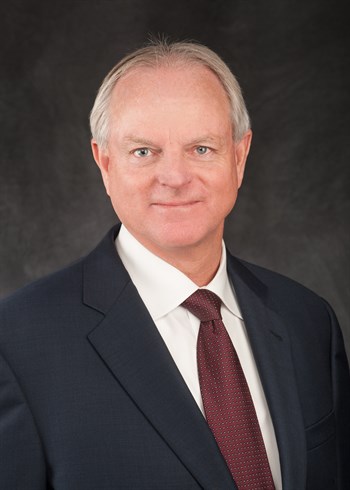Texas A&M Appoints Dr. Gerald Parker as Associate Dean of Global One Health
COLLEGE STATION, Texas – The Texas A&M University College of Veterinary Medicine & Biomedical Sciences (CVM) announces Dr. Gerald W. Parker as the new Associate Dean for Global One Health. The appointment is housed within the CVM.

In this role, he will serve as Campus Director for Global One Health for Texas A&M University and also will hold joint appointments in the College of Agriculture & Life Sciences, as strategic advisor of the Institute for Infectious Animal Diseases in AgriLife Research, and the Bush School of Government & Public Service, as Director of the Biosecurity and Pandemic Policy Program.
Parker will lead, coordinate, and expand the Global One Health program to meet its goals of improving global health and actively engage both national and international partners in pursuing innovated health solutions.
A U.S. Army veteran with combined military and civilian federal public service of more than 36 years, Parker’s federal experience culminated with his service as the deputy assistant Secretary of Defense for chemical and biological defense in the U.S. Department of Defense.
Parker also served as the principal deputy assistant secretary within the Department of Health and Human Services’ (DHHS) Office of the Assistant Secretary for Preparedness and Response. Parker led the coordination of DHHS-wide efforts to prepare for and respond to public health and medical emergencies. In this role, he also served as a focal point for operational and policy coordination with the White House, Congress, other federal departments, state and local officials, private sector leaders, and international authorities that includes disaster responses to Hurricane Katrina to the Haiti earthquake, and the 2009 influenza pandemic.
Prior to joining the College of Veterinary Medicine and Biomedical Sciences, Dr. Parker served as the interim director of the Institute for Infectious Animal Diseases and associate vice president for public health preparedness and response at the Texas A&M Health Science Center.
“We are honored to have Dr. Parker join our team in the College of Veterinary Medicine & Biomedical Sciences,” said Dr. Eleanor Green, the Carl B. King dean of veterinary medicine. “With his many talents, career experiences, and widespread reputation, he will help us realize our goals of synergizing the unique strengths across campus, nationally and internationally, to advance animal, human, and environmental health in a shared ecosystem.”
In 2015, Parker was one of 27 individuals named to the U.S. Department of Homeland Security’s Science and Technology Advisory Committee (HSSTAC), which advises the department’s Undersecretary for Science and Technology on matters related to the expansion of technological capabilities. He also serves as an ex officio member of the Biodefense Blue Ribbon Panel co-chaired by former Governor Ridge and former Senator Lieberman.
“Dr. Parker is a remarkable scholar, a remarkable administrator, and a remarkable practitioner,” said Mark A. Welsh III, Dean of the Bush School of Government and Public Service. “We are honored to have him join the Bush School faculty in this role and believe he has the talent, experience, and leadership skills to take biosecurity and pandemic policy discussions in this country to a new level.”
During his military career, he served in many roles, including former commander and deputy commander of the U.S. Army Medical Research Institute of Infectious Diseases.
In 2009, Parker was recognized with the Distinguished Executive Presidential Rank Award, the highest annual recognition for senior executive service personnel and the Secretary of Defense Medal for Civilian Meritorious Service in 2013.
Parker holds a doctorate of veterinary medicine from Texas A&M University, a doctorate in physiology from Baylor College of Medicine, and a master’s degree in resourcing the national strategy from the Industrial College of the Armed Forces.
Texas A&M University One Health is the collaborative effort of multiple disciplines working locally, nationally, and globally to attain sustainable optimal health for the ecosystem.


